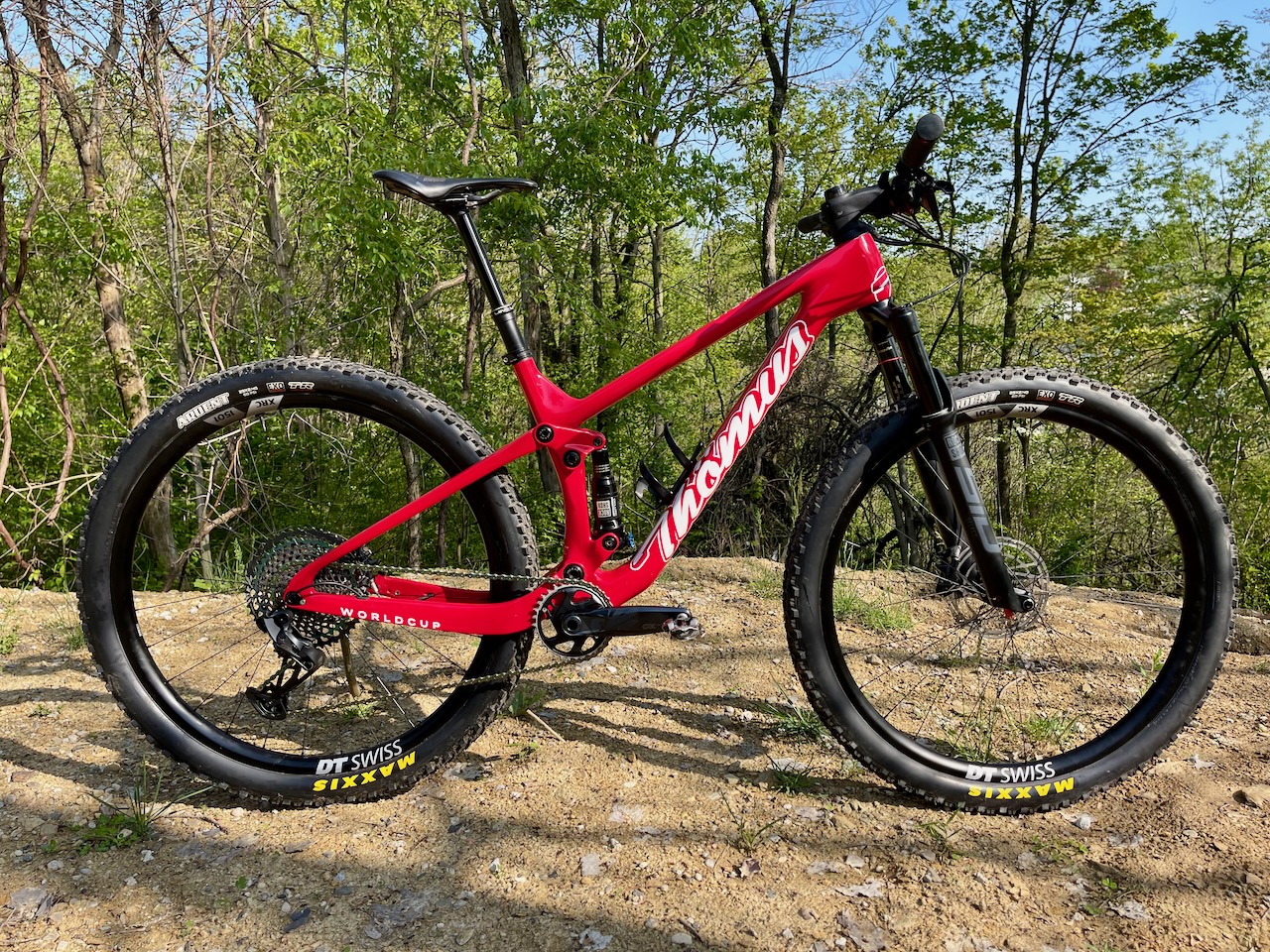The Thömus Lightrider World Cup is a carbon XC bike many of us are familiar with but have never laid our hands on. The iconic red racing frame has been all over the front of the men’s and women’s Cross Country World Cup for years. We’ve featured Lightriders in our Pro Bike Checks for a few years, picking them out on the UCI XCO World Cup.
Thomus Lightrider World Cup carbon XC mountain bike
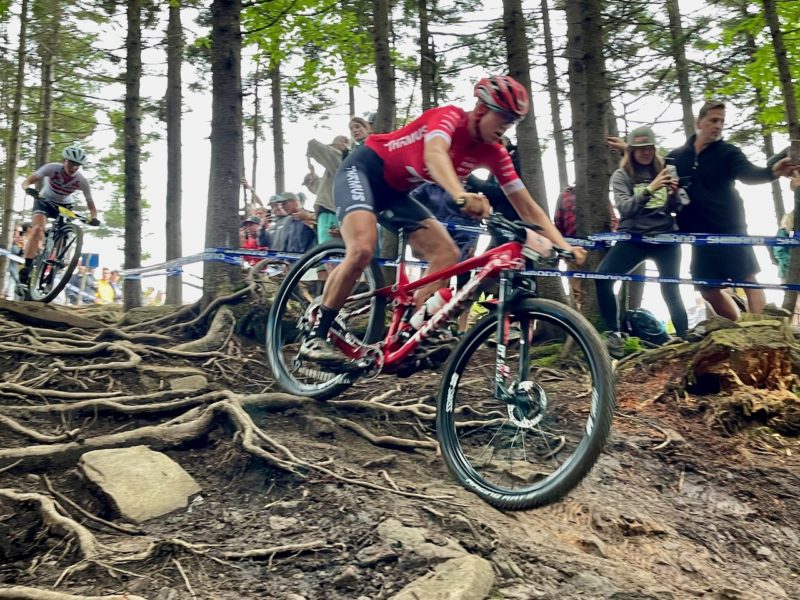
I mostly knew the frame as “the bike Matthias Flükinger and Alessandra Keller ride” with their Swiss Powerhouse Thömus-Maxon professional MTB team.
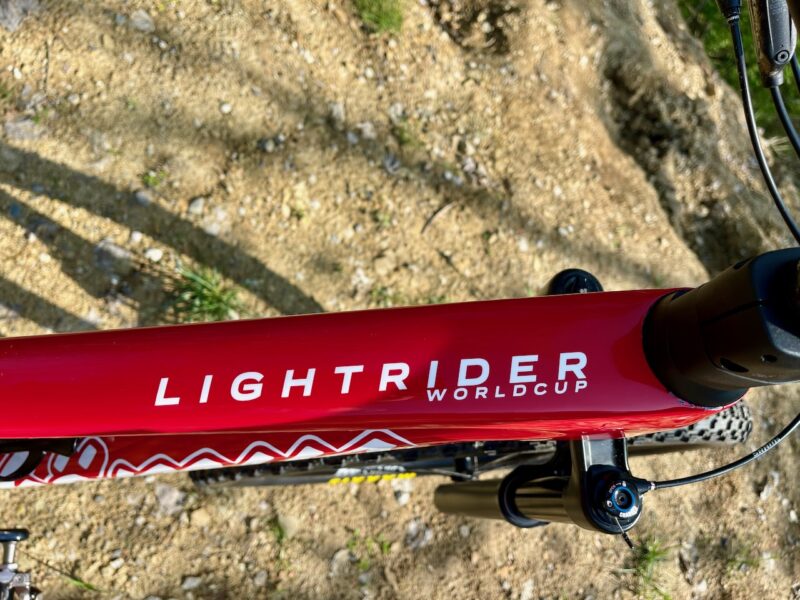
More recently, the first Thömus concept store opened in Santa Monica, California. So, we’re guessing you’ll see them around your local trails and race start lines soon. In any case, we thought that was a solid enough impetus to get one in for a comprehensive review.
Who is Thömus, anyway?
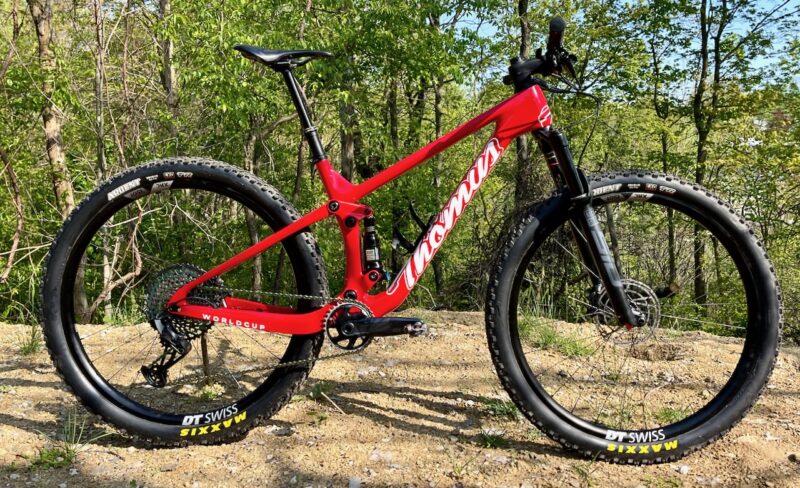
That’s the first question I was asked at the trails, “who are they?”
I tell you one thing; they are not newcomers to the cycling world. Thömus SA was founded in 1991 and has always had a keen eye for cycling talent, and producing exceptional bikes for a small manufacturer. They are a well-known brand in their region in Switzerland, and are rapidly gaining more global popularity with the help & success of the Thömus Maxon team, plus newfound USA distribution.
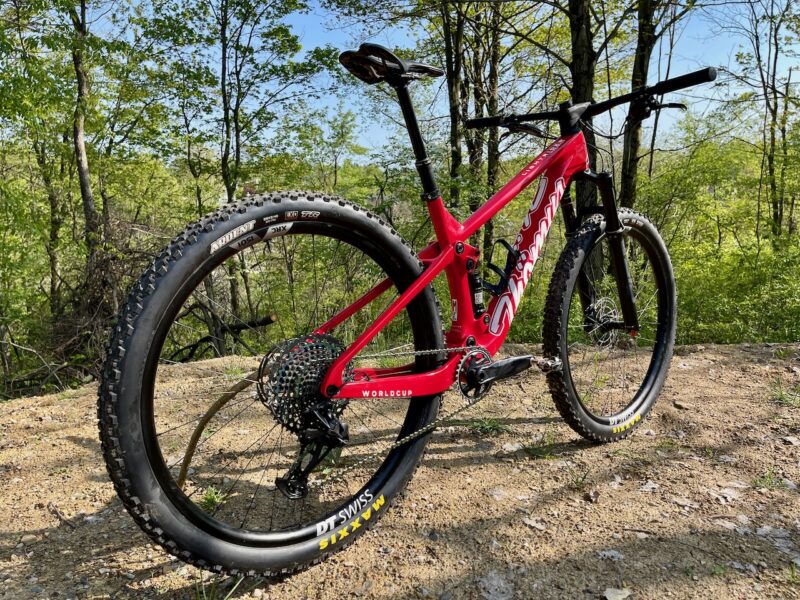
You might remember them for developing the first road bike with integrated cabling or launching the Lightrider e-Ultimate, the world’s lightest dual-suspension electric mountain bike at the time. They also have deep trail cred, and a history of race performance and innovation.
Thömus Lightrider World Cup XC MTB
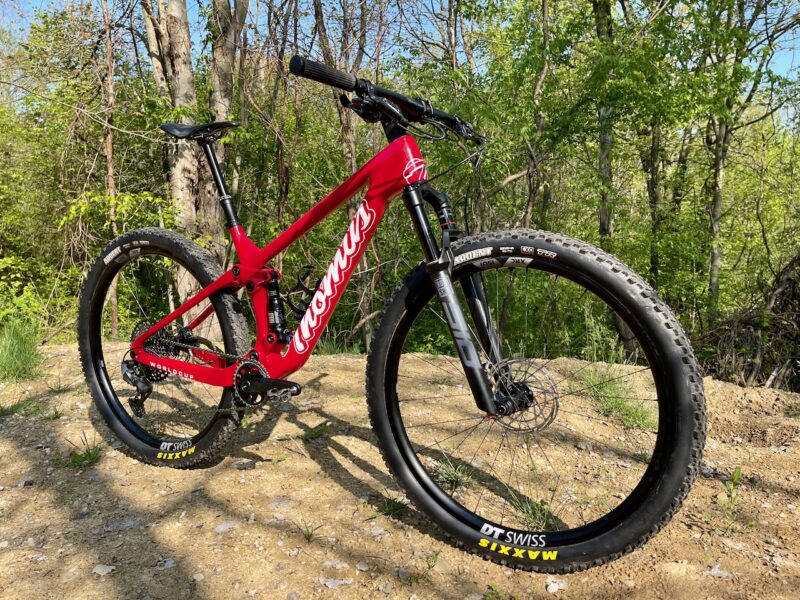
The Thömus Lightrider World Cup is the brand’s flagship carbon XC race mountain bike. The design is race-focused with some clever bits of tech and suspension readability. Its World Cup hardtail counterpart, the TomCat, sees less camera time but is still on standby in the Thömus Maxon team trailer for less technical courses. The Thömus Lightrider World Cup is among five available in the Thömus acoustic MTB line.
Frame Tech Details
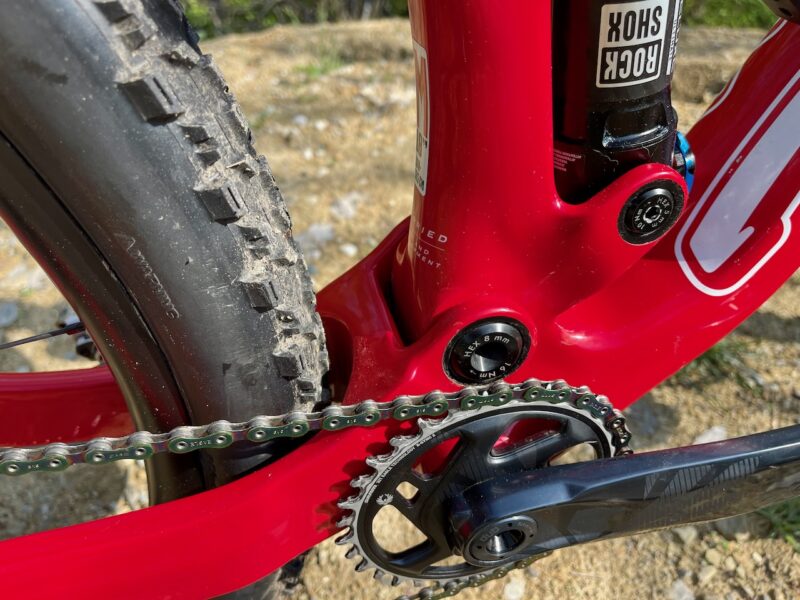
The carbon Lightrider World Cup frame is robust. Most of that is the oversized down tube and seat tube junctions. This sturdy design allows for excellent power transfer yet leans heavily on the suspension to provide a balanced, supple ride.
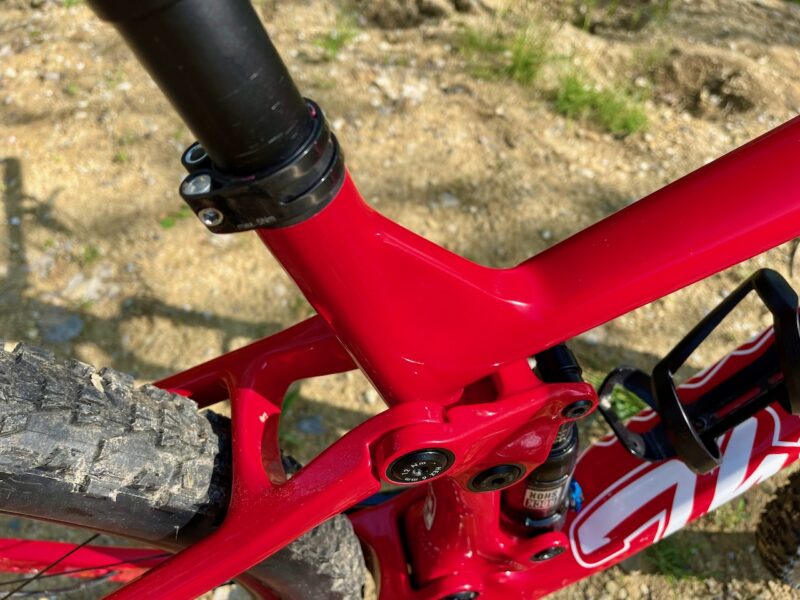
Standing over the Thömus Lightrider World Cup, I noticed how dramatically sloping the top tube is. The design reminded me slightly of the previous Trek Top Fuel, yet with a much stiffer front end.
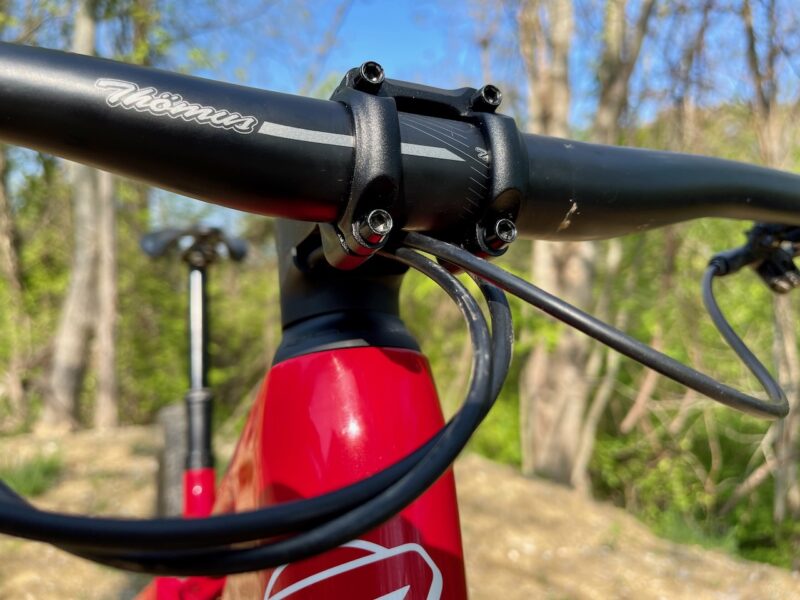
For better or worse, the cabling runs internally through the headset. The routing is neat and, paired with the Acros-Components stem/guide, is barely noticeable. The only drawback of course, is complicated bearing replacement and difficulty in getting a super-slammed stem without further modification.
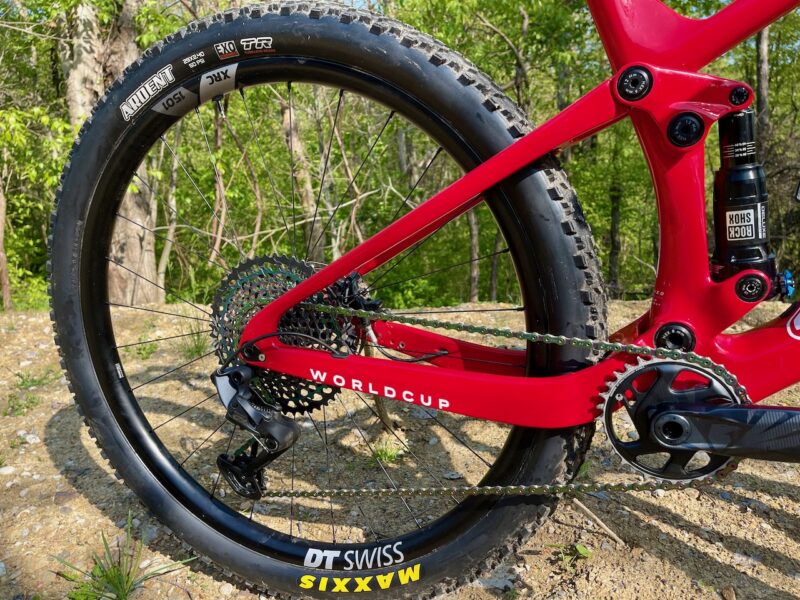
The frame’s rear is equally overbuilt, with most beef in the ‘chain staying’. When the chainstays connect to the seat tube junction, they have an sculpted look that flares upwards. During my many muddy test rides on the Lightrider, we found that this slight flare helps keep mud from accumulating, actsing like a mud scraper.
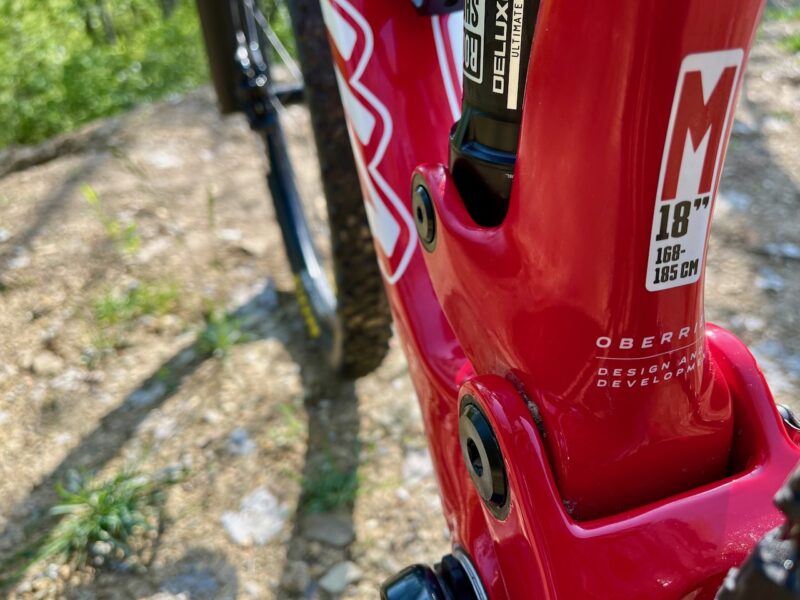
The beefiest part of the frame has to be that bottom bracket junction. Thömus uses a press-fit BB, and the bike is usually built with a Shimano spec (especially for the team). So you’d rarely see a BB30 crankset on it. Our test ride came with a SRAM groupset, though; and the DUB press fit BB was an excellent match with bearing size and longevity.
Test Bike Build: Thömus Lightrider World Cup
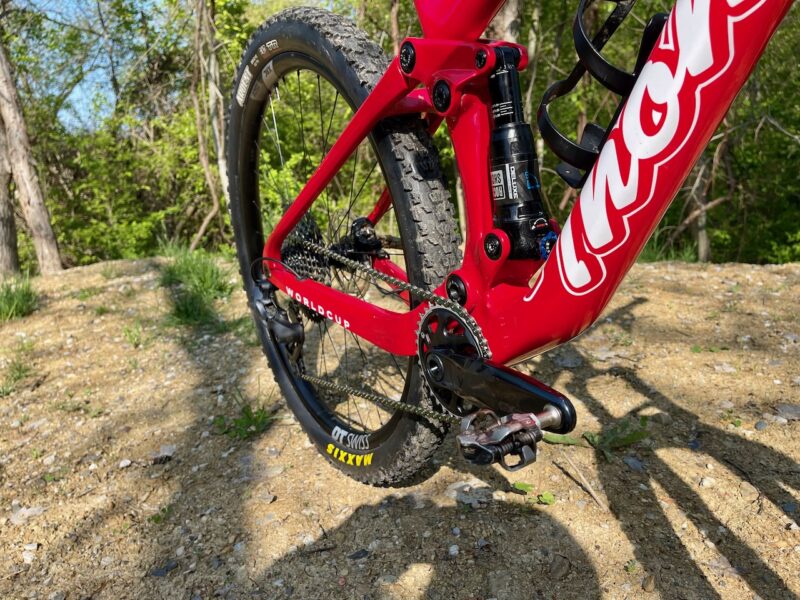
You can find 3 specs for the Thömus Lightrider World Cup on the international site for Thömus. Since our test bike came from the new Thömus Concept store in CA, they treat component specs & complete builds on a per-rider custom setup. The Thömus Concept store effectively operates like a bike studio, offering the base frame, and then putting together each build to suit the rider and their individual needs.
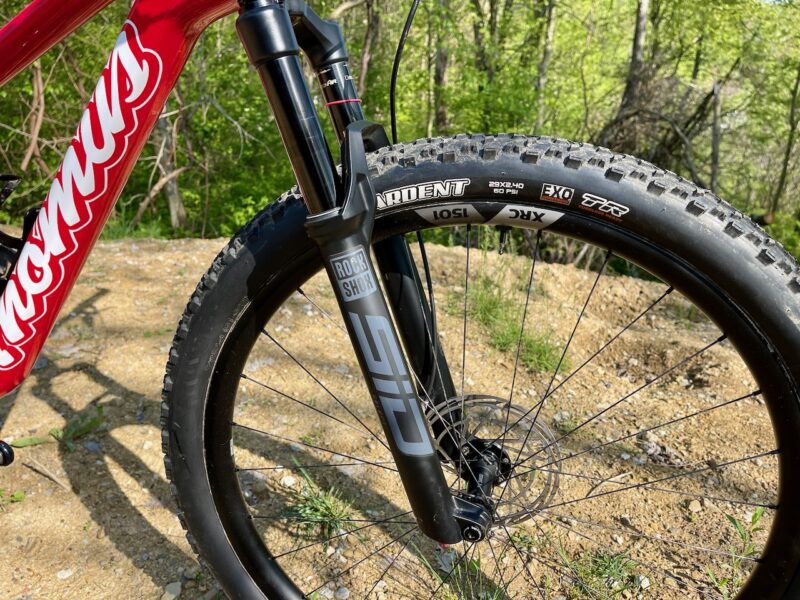
Our review ride is the “race and ride anything” build with a 120mm fork and a bit more playful tech than full-on race-focused trimmings. Think of it as an XC+, a Marathon, or a Superlight Trail setup.
Our review ride arrived with a SRAM GX Eagle setup, something not offered on the international Thömus site.
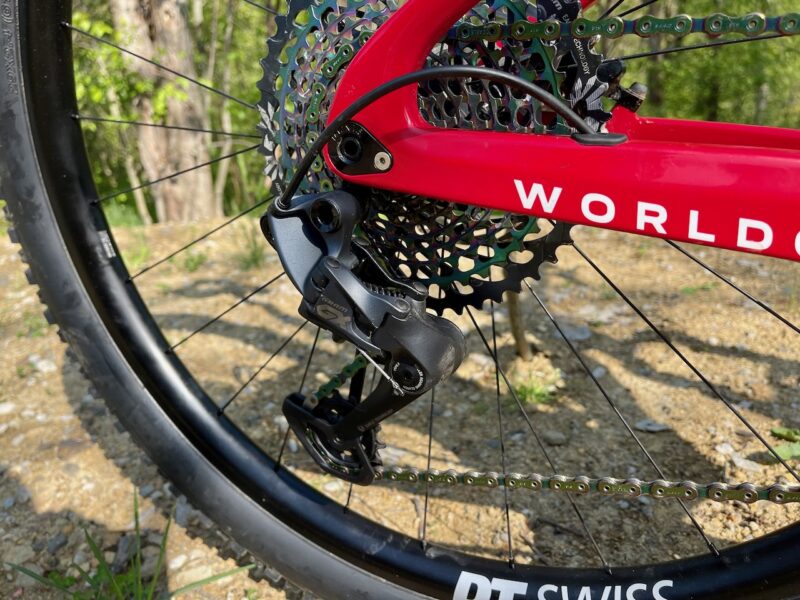
The build for our review ride is certainly more marathon-focused, with a kit that can take the abuse of a long day out on the trail without needing constant attention.
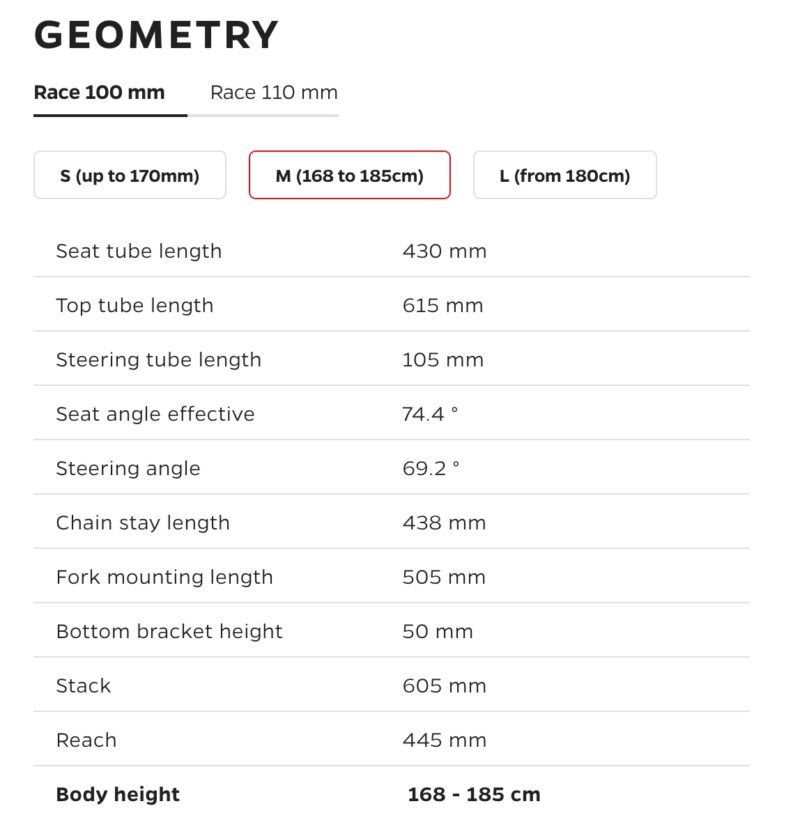
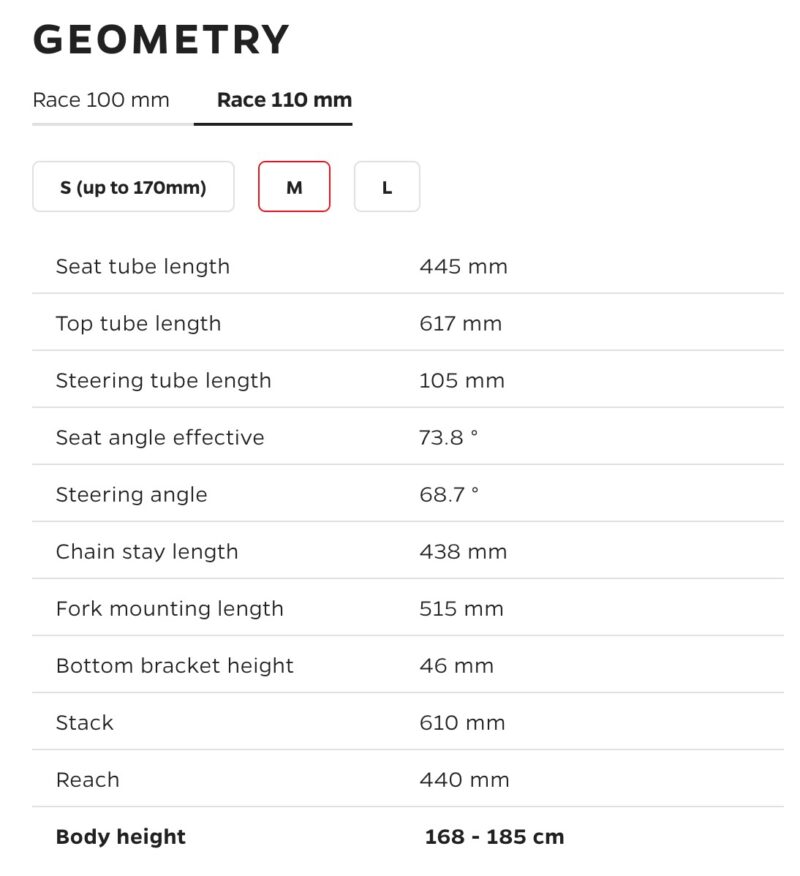
I liked this idea, but I also wanted to see what a full-on World Cup race build would unleash — more on that later.
Full Specs: Lightrider World Cup
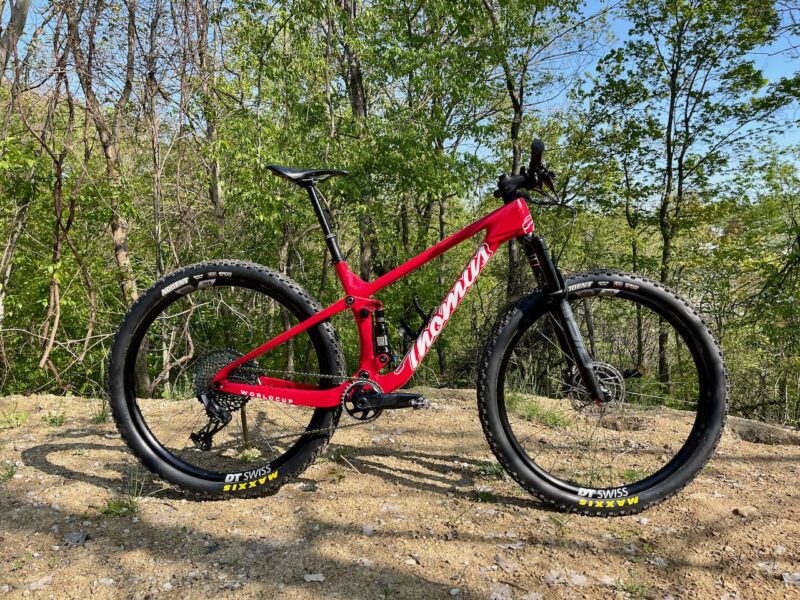
- Frame: Thömus Lightrider World Cup Size: MED (18″)
- Bare frame weight: 3.6lbs
- Fork: RockShox SID 120mm
- Shock: SID Deluxe Ultimate
- Shifting: SRAM GX Eagle 12 Speed
- Cassette: SRAM XO (XX pictured)
- Brakes: SRAM Level TL 180F/160R
- Wheels: DT-Swiss XRC 1501 (240 hubs)
- Tires: Maxxis Ardent 2.40X29′
- Bars: Thömus Full Carbon 680mm
- Stem: Acros-components 80mm
- Saddle: Selle Italia SRL Carbon
- Dropper: KS-LEV-Si
- Weight: 26. lbs as built
- Price: $7,800 (as pictured)
The Ride
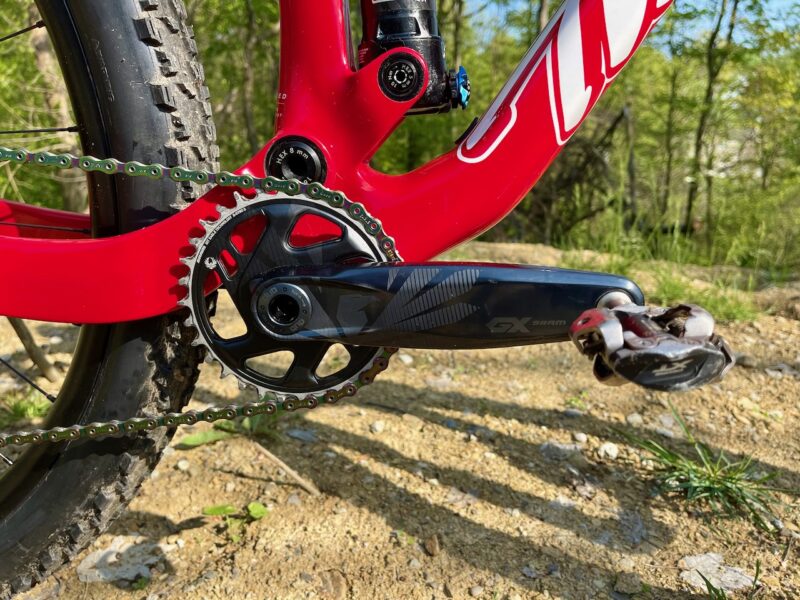
I started riding the Thömus Lightrider World Cup when the weather was dreary, and the trails were still covered in snow. I assumed it wasn’t ideal conditions for a race bike, but I was wrong. The Thömus Lightrider World Cup is more than a full-throttle race machine; it’s also a playful bike with laser-focused responsiveness.
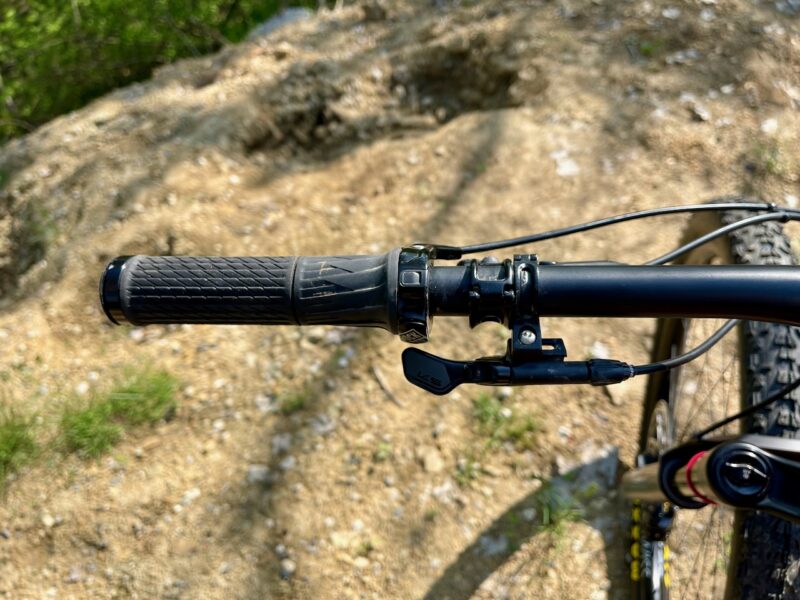
In the “race mode” with a 100mm fork, the Lightrider WC has a steering angle of 69.1º. Our review ride is a 120mm fork and kicks the headtube back slightly, giving the bike a longer leash to get a bit more rowdy. I’m a bit reluctant to say that the 120mm fork on the Lightrider World Cup brings it into down country territory?
But it is more like a super capable, extremely race-focused cross-country bike.
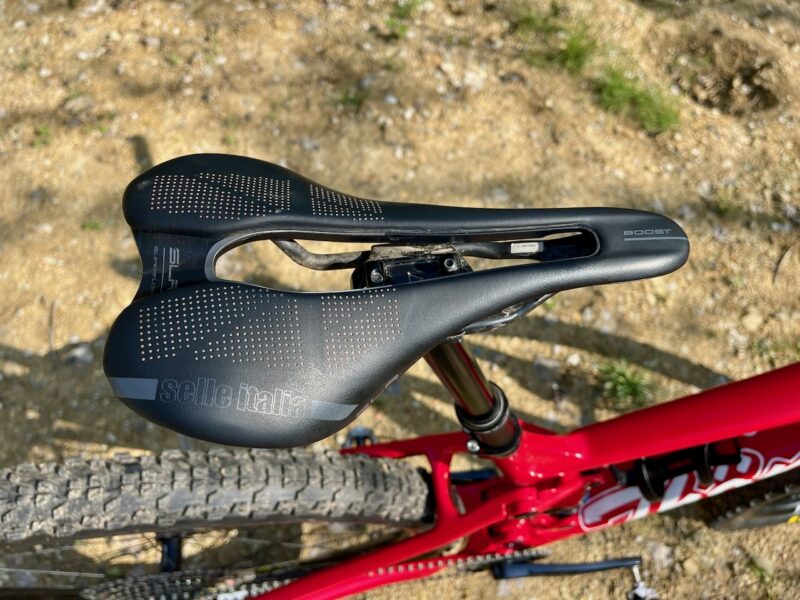
The stock and supple suspension help round off some uber-stiff tube designs. The beefed-up headtube and bottom bracket are perfect for hammering out the watts. When the suspension is locked out, the bike moves — fast.
The feeling on the open road is legitimately similar to the stiffness of a road bike.

What I liked most about the Lightrider has been the versatile nature of the bike. I never felt over or under-biked when heading out on a ride. Yes — this is slightly specific to the build, but the frame is a master of many. I felt confident on the drops (something I admittedly terrible at) and still super quick on the climbs.
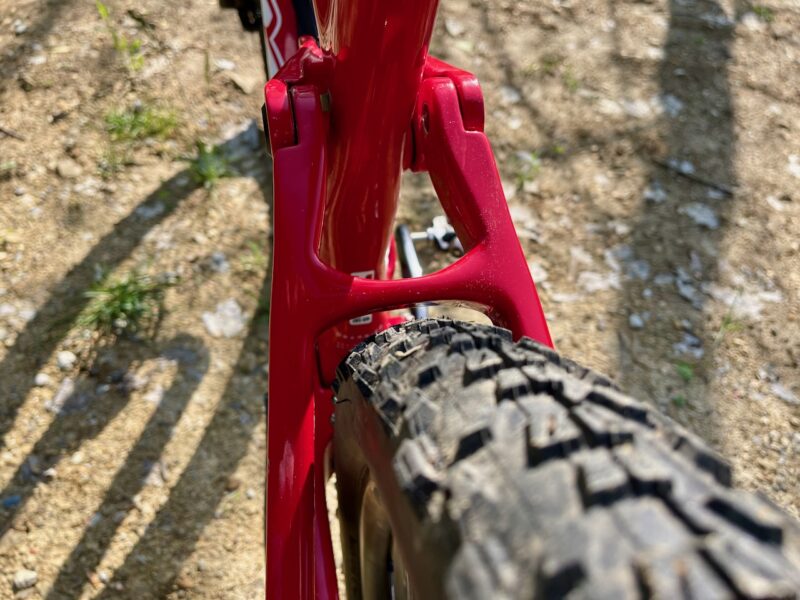
The only thing that held this build down slightly was the wheels. Yes — they are super lovely wheels, but they are slightly heavy for the rocket climbing abilities of this bike – especially paired with the 2.4″ Ardent tires.
I put on my own Roval Control CL wheels, pulled off my personal XC race bike, to mix it up and went for my usual test spin. The wheel swap made the bike climb way better. The speed going uphill and the frame’s responsiveness made me want to push more on those assents.
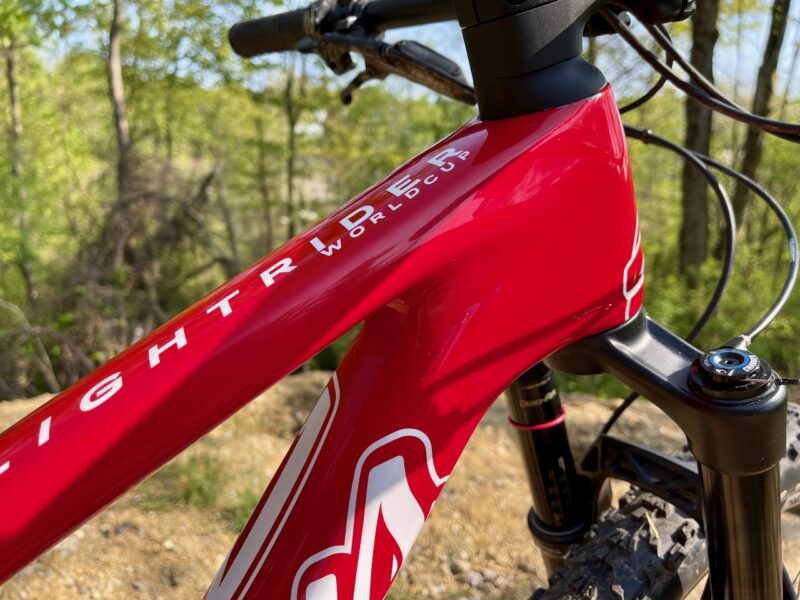
It made me wonder how this bike would perform with an all-out race build…
Final Thoughts
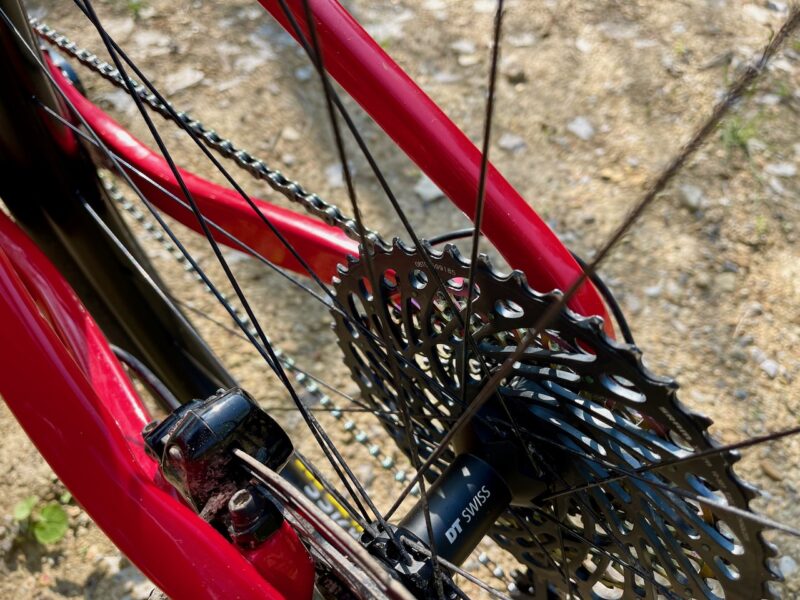
The Thömus Lightrider World Cup is a premium race machine at heart and on paper. But what surprised me about this frame and setup is the versatility and master of many vibes experienced on the trails. Not only in trail terrain but travel setup and beyond, the Thömus Lightrider World Cup is a bike that can be many (XC race, marathon, and shred) with the right quiver of gear.
Project XC

Riding the Thömus Lightrider World Cup in the marathon build we received has only made us want to experience the bike in its natural form — a full-on race machine. So we’re taking the frame and doing a bottom-up rebuild with race bits from Fox, Shimano, FSA, and DT-Swiss. Stay tuned!
Look for a long-term review in midsummer and build shots on our Instagram.
